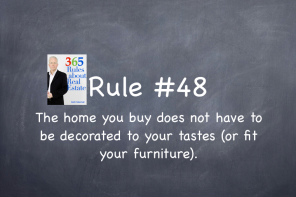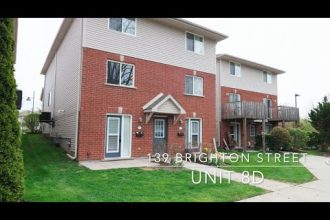Market price and market value compared
When it comes to home prices, by definition the only way to know the true market price for a home is to wait for it to sell. The true market price is the price of a commodity when sold in a given market.
Contrary to popular belief, Realtors doing listing presentations and making offers on homes on behalf of their clients do not know the market price of a given home. We do, however have a pretty good idea of market value. The market value is the amount for which something can be sold in a given market. (The italics are mine.)
Terms defined…
market price
noun: the price of a commodity when sold in a given market.
market value
noun: the amount for which something can be sold on a given market.
How can you determine the market value of a home?
Whether you are buying or selling, determining the value is very important. Buyer’s don’t want to pay too much and sellers want to get all they can.
There are many factors that are important for determining the correct market value and naturally, Realtors, lenders, assessors, city officials, builders and developers all look at determining market value in different ways, weighing the values of these factors differently.
Market value and location
Location is the number one determinant for value. And a home’s location will not only dictate what the home will likely sell for, but also how many days it will probably take to sell.
Furthermore, it is not only the neighbourhood itself that is important but also the home’s location within that neighbourhood. A home on a quiet cul de sac will have a higher value than one on a busy corner even though they may be located in the same neighbourhood.
Square footage
The livable space of a home is an important factor when determining value. There is a tendency amongst many people to look for a simple formula equating square footage with market value. None exists. Builders and developers (especially of apartments style condominiums) use this factor more than Realtors, but what is also important is, for homes the layout and number of storeys and for condos what floor the unit is on, amongst other things.
Number of bedrooms and bathrooms
Often homes in the same neighbourhood will be of similar square footage but have a different number of bedrooms and bathrooms. Simply put, the more bedrooms and bathrooms a home has, the higher the market value will be.
Renovations, improvements and upgrades
Renovations, improvements and upgrades also add to a home’s market value. It is not only a finished basement, a remodelled kitchen or a new bathroom that will add value to a home, but nice landscaping or something as simple as a fresh coat of paint can do the job.
Age of home
You might think that a newer home would be more valuable than an older home. In some cases that is true. Newer homes have modern finishes and layouts that appeal to many first time home buyers.
However, also true is that older homes in mature neighbourhoods are extremely popular again.
All in all, the appeal of the home and the neighbourhood in which it is in are more relevant than the home itself.
Materials and finishes
The quality of the materials used in construction and updating and the finishes can have a lot to do with market value of a home. The overall maintenance of a home will also be reflected in it’s valuation.
Style of home
Home styles, layouts and materials change with the times. Oftentimes, what was popular and trendy twenty years ago looks seriously out of date today.
Market value and housing market trends
Timing is very important to the valuation of homes. The market price of homes rises and falls during the year, depending on season, supply and demand. The current housing market can change very quickly and as such the market value of a home can fluctuate accordingly.





